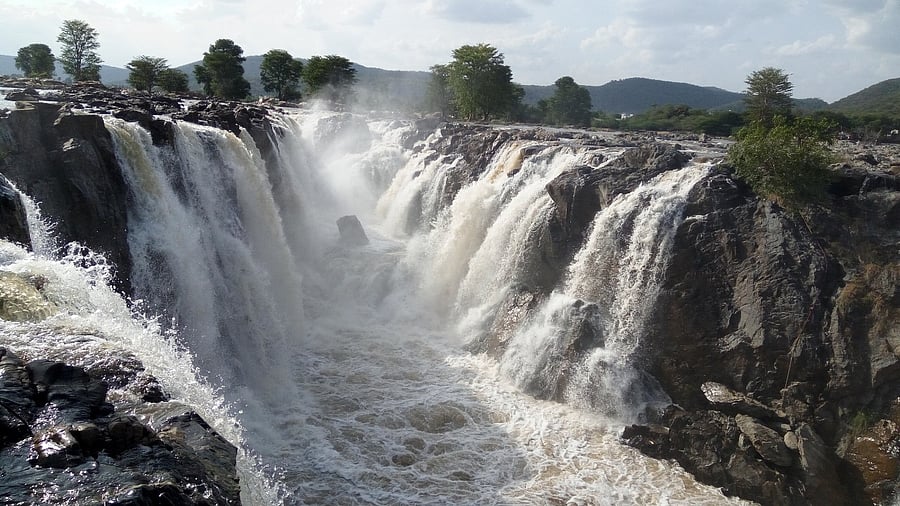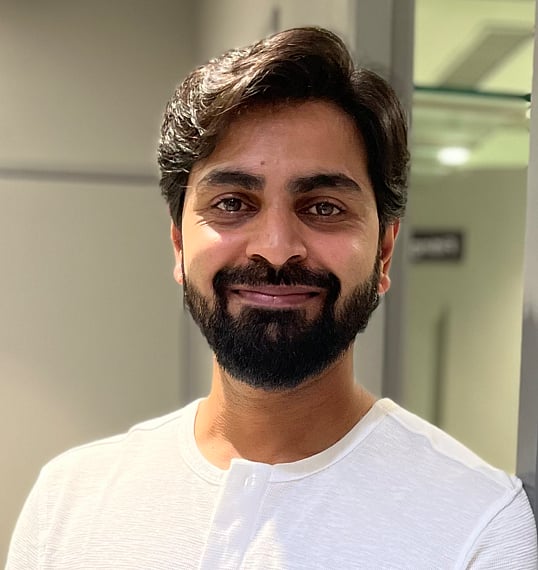
On January 20, Tamil Nadu announced that it will implement the second phase of the Hogenakkal Water Supply and Fluorosis Mitigation Project at a cost of Rs 4,600 crore. Karnataka immediately raised objections, saying Tamil Nadu cannot go ahead with any scheme that utilises Cauvery water without its concurrence. Here is a detailed look at the project, why Karnataka is objecting to it and whether it can really block it:
What is the Hogenakkal project?
Originally conceived in the 1960s, the Hogenakkal project saw the light of day only in 2013. Under the first phase, 160 MLD of potable water is supplied to the drought-prone districts of Dharmapuri and Krishnagiri. Keeping the fluorosis content in the water within the permissible limits of 1.50 mg/litre is also an essential component of the project.
Every person is provided with 30 litres of water a day in rural habitations, 40 litres in town panchayats and 75 litres in municipalities.
The first phase, implemented at a cost of Rs 1,928.80 crore, serves three municipalities, 17 town panchayats and 7,639 rural habitations.
Where is Hogenakkal located?
Hogenakkal, a scenic tourist spot known for its waterfalls, is located on the border between the Dharmapuri district of Tamil Nadu and the Chamarajanagar district of Karnataka. It is about 125 km south of Bengaluru. The word Hogenakkal is of Kannada origin and roughly means smoky rocks. The Cauvery water which enters Tamil Nadu at Biligundulu in Krishnagiri district from Karnataka reaches the Stanley reservoir at Mettur through Hogenakkal.
The Tamil Nadu Water Supply and Drainage Board says the intake structures for the project are designed and located in such a way that the required water flows into the intake well even during the lowest flow in Cauvery.
Didn't Karnataka object to the first phase?
It did but Tamil Nadu managed to implement the project because observers say its case was stronger. Tamil Nadu said it was using only its share of the Cauvery water. Beyond political rhetoric, Karnataka couldn't do much, and Tamil Nadu was able to commission the project.
What's proposed in the second phase?
Tamil Nadu believes the second phase is needed to continue the supply of potable water to Krishnagiri and Dharmapuri, and meet the demands of a rising population.
The amount of water supplied per person per day will be increased to 55 litres in rural areas (as mandated under the Centre's Jal Jeevan Mission) and 135 litres in town panchayats and municipalities. As the population is projected to rise to 41.54 lakh in 2024, 49.46 lakh in 2039 and 57.31 lakh in 2054, the amount of water needed will increase to 254.64 MLD in 2024, 288.78 MLD in 2039 and 375 MLD in 2054. Phase-II will serve one municipal corporation (Hosur), two municipalities, 16 town panchayats and 6,818 rural habitations.
In addition, the SIPCOT industrial estate in Dharmapuri has sought 20 MLD per day.
Tamil Nadu estimates it will need Rs 1,800 crore to expand the project in Dharmapuri and Rs 2,800 crore in Krishnagiri.
What does Karnataka say?
Karnataka has announced it will oppose the Hogenakkal project both legally and politically.
Karnataka's opposition is based on two grounds: the project falls in the geography of both states and was not placed before the Cauvery tribunal or the Supreme Court. Geographically, Karnataka says, Hogenakkal is a 64-km region that covers both sides of the border. Apparently, the Survey of India has not finalised the border along Hogenakkal. Karnataka also argues that any project Tamil Nadu wants to take up in the Cauvery basin should be in line with the allocation of water made by the tribunal and Supreme Court orders.
What does Tamil Nadu have to say?
Tamil Nadu cites both legal and humanitarian grounds to justify the second phase. It also cites the Supreme Court's February 16, 2018, judgement on sharing the Cauvery water between states. It says the final verdict of the Cauvery Water Disputes Tribunal allowed 2.2 tmcft of water for consumptive use and 25.7 tmcft of water for permitted irrigation schemes. Since the verdict has been upheld by the Supreme Court, Tamil Nadu says it is well within its rights to implement the second phase of the project.
Check out latest DH videos here

